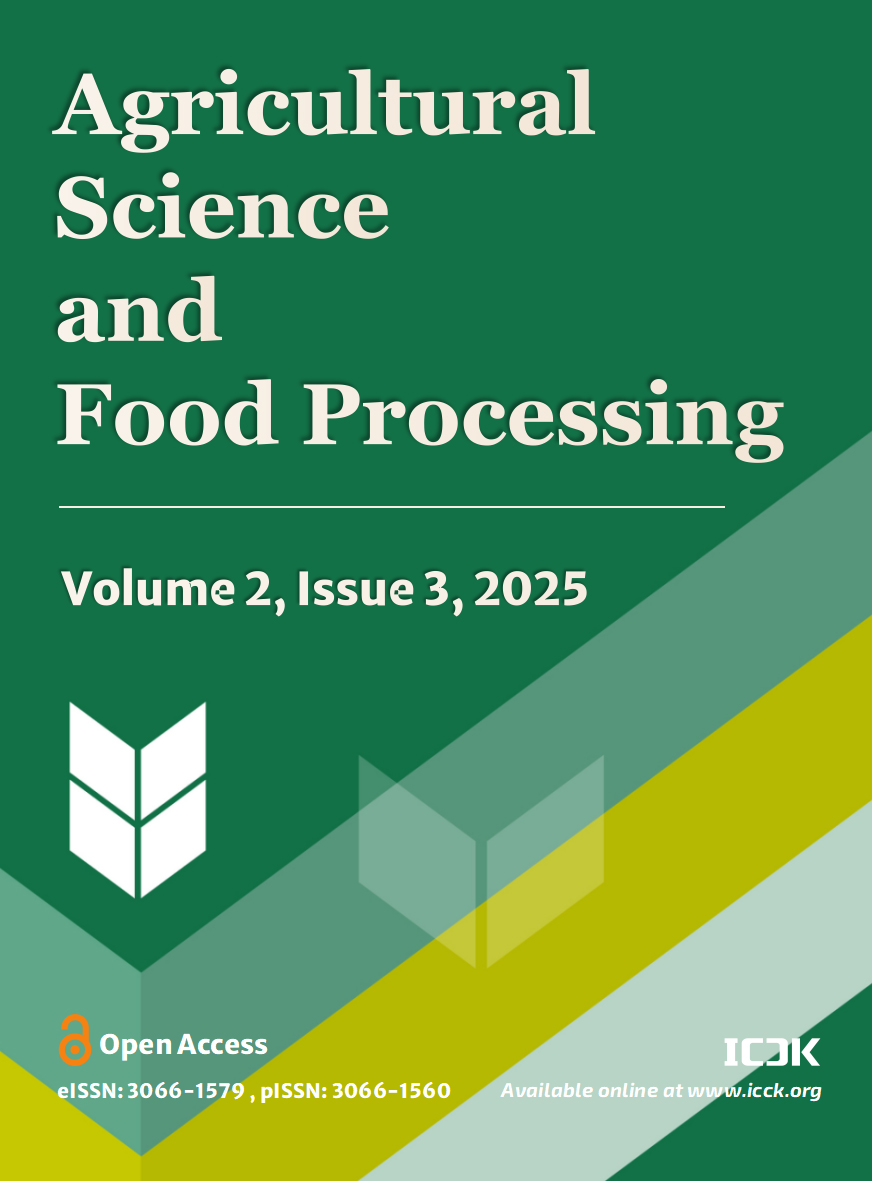Abstract
The study focused on the economic analysis of palm fruit processing among rural farmers in Ezeagu Local Government Area of Enugu State, Nigeria. Specifically, it described the socio-economic characteristics of palm oil processors, identified processing methods, estimated costs and returns, determined factors influencing output, and examined constraints. A multi-stage stratified random sampling technique was used to select 60 respondents. Data were collected with structured questionnaires and analyzed using descriptive statistics (frequency, percentage, mean, and gross margin model) and inferential tools such as regression and Z-test models. Results showed that 35% of producers used mechanized technologies while 65% used traditional methods. The benefit–cost ratio was 1.30 for traditional processing and 11.8 for modern methods. Regression results indicated that age (-0.773*), education (1.149***), household size (0.068***), farming experience (0.089***), income (0.113***), and access to credit (0.228***) significantly influenced palm oil processing. Major constraints were lack of electricity (100%), non-availability of palm fruit (93.3%), lack of government support (93.3%), inadequate credit (86.7%), and insufficient land (85%). The Z-test revealed a significant income difference between modern and traditional methods. The study concludes that modern processing is more profitable and recommends stronger extension services to enhance farmers’ adoption.
Data Availability Statement
Data will be made available on request.
Funding
This work was supported without any funding.
Conflicts of Interest
The authors declare no conflicts of interest.
Ethical Approval and Consent to Participate
Not applicable.
Cite This Article
APA Style
Ejike, O. S., Victor, A. E., & Okoronkwo, F. C. (2025). Economic Analysis of Palm Fruit Processing Among Rural Farmers in Ezeagu Local Government Area of Enugu State, Nigeria. Agricultural Science and Food Processing, 2(3), 133–141. https://doi.org/10.62762/ASFP.2025.271322
Publisher's Note
ICCK stays neutral with regard to jurisdictional claims in published maps and institutional affiliations.
Rights and Permissions

Copyright © 2025 by the Author(s). Published by Institute of Central Computation and Knowledge. This article is an open access article distributed under the terms and conditions of the Creative Commons Attribution (CC BY) license (
https://creativecommons.org/licenses/by/4.0/), which permits use, sharing, adaptation, distribution and reproduction in any medium or format, as long as you give appropriate credit to the original author(s) and the source, provide a link to the Creative Commons licence, and indicate if changes were made.


 Submit Manuscript
Edit a Special Issue
Submit Manuscript
Edit a Special Issue
 Copyright © 2025 by the Author(s). Published by Institute of Central Computation and Knowledge. This article is an open access article distributed under the terms and conditions of the Creative Commons Attribution (CC BY) license (https://creativecommons.org/licenses/by/4.0/), which permits use, sharing, adaptation, distribution and reproduction in any medium or format, as long as you give appropriate credit to the original author(s) and the source, provide a link to the Creative Commons licence, and indicate if changes were made.
Copyright © 2025 by the Author(s). Published by Institute of Central Computation and Knowledge. This article is an open access article distributed under the terms and conditions of the Creative Commons Attribution (CC BY) license (https://creativecommons.org/licenses/by/4.0/), which permits use, sharing, adaptation, distribution and reproduction in any medium or format, as long as you give appropriate credit to the original author(s) and the source, provide a link to the Creative Commons licence, and indicate if changes were made. 